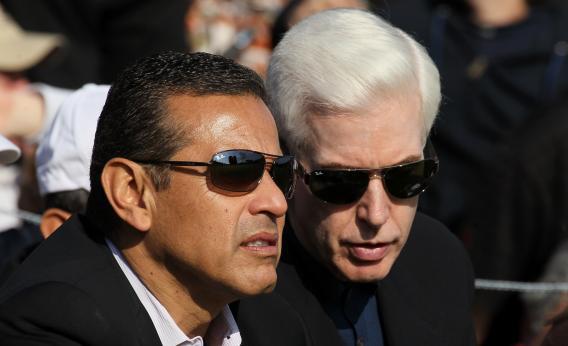The forward-looking risks to the Republican Party from last night’s election results seem clear enough, but there are also risks on the Democratic side. Not so much risks of electoral defeat as simply of failure—the precedent for which is easily found in the state of California, whose state Republican Party slipped beneath a veil of demographic and ideological irrelevance some time ago.
And yet looking at California since Proposition 187 one sees neither a burgeoning progressive utopia nor technocratic feats of good governance. A pleasant climate and its status as the longstanding hub of America’s high tech industry gives the state enduring strengths that other areas lack. One shudders to think of California public policy mixed with the objective conditions that exist elsewhere.
To be sure, with a partisan’s hat on one can say that California’s policy woes are scarcely all the problems of the state’s Democratic Party. They’ve been dealt both a badly flawed set of political institutions and a remarkably intransigent opposition party. But lawyering aside, the task of a governing party is to govern and those who would reap the electoral fruits of a nutty opposition have an obligation to try to make it work. In California, Democrats have neither delivered great policy reforms within the existing framework nor managed to reform the institutional scheme. Something we saw both in the Golden State and in the 111th Congress is simply that it’s difficult in America to make sound policy without some level of bipartisan cooperation. Barack Obama clearly has the soul of an intelligent reformer (see Race to the Top) but when ideas come into contact with the need to grind out congressional wins you get sordid deals (see provider side-bargains in the Affordable Care Act) and ugly kludges (see Waxman-Markey) and schemes that go out of their way to avoid unduly disturbing the status quo (Dodd-Frank).
Points of this sort have tended over the past four years to degenerate rapidly into “if you’re so smart, what would you have done differently?” replies. To which I’m happy to say I’m not saying I’m so smart I’m just saying the country needs better outcomes than we’ve been getting.
My sober assessment is that being President of the United States is really hard. I don’t envy Harry Reid or Nancy Pelosi either. Heck, John Boehner and Mitch McConnell are in tough spots too. US political institutions are not very well suited to today’s mix of ideologically sorted parties and well-educated highly engaged voters. I know a lot of people who were disappointed with Obama’s first term. I’ve been pleasantly surprised. I thought there was no way he’d get a health care bill done and that the auto bailout was going to turn into a porkerific disaster. I underestimated the man and his team and his allies on the Hill. But it doesn’t change the fact that we need to find ways to do better and California is a nagging reminder that consistent electoral victory by the party I almost always prefer doesn’t lead automatically to huge substantive successes.
